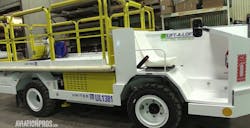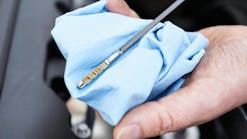Northwest mechanics may have the stomach for a strike against the airline. But do they have the wallets?
One Wall Street analyst has doubts.
According to Susan Donofrio, with Fulcrum Global Partners, the Aircraft Mechanics Fraternal Association doesn't have the money to sustain a long walkout.
"We don't think that their coffers are full enough to ride out a prolonged strike," she wrote in a research note Friday.
She noted that the national office of AMFA, which represents some 16,000 mechanics and other workers at Northwest, United and other airlines, had just $159,000 in cash at the end of 2004.
According to their most recent filings with the Department of Labor, the seven AMFA locals that include Northwest employees had another $650,000 in cash. That's not much strike pay for nearly 5,000 union members.
Indeed, the mechanics have no strike fund, acknowledged Jeff Mathews, AMFA's contract administrator for Northwest. But strike funds are not the most important thing in getting members though a strike, he said.
"We have a highly skilled work force, very capable of finding employment elsewhere in many different trades, such as the auto industry, machine shops and heavy equipment maintenance," he said.
A typical strike fund might be worth $100 a week, he said.
"That's a help," added Mathews. "But we need the support of the community and flying public to get us through a strike."
Mechanics are taking a strike-authorization vote through July 19. Both the mechanics and Northwest have asked the National Mediation Board to declare their contract talks deadlocked. If the board concurs, there could be a strike or lockout after a 30-day cooling-off period.
Late Friday, the mediator in the negotiations between Northwest and its mechanics said the next round of bargaining has been canceled, although no decision had been made about whether to declare the talks at an impasse.
The canceled talks were set for July 19-22 in Seattle, the mechanics said on Friday.
Talks continued through Friday, even as the National Medication Board considered whether to declare them at an impasse.
With the union, the final decision to strike or not would be made by its negotiating committee and national director O.V. Delle-Femine.
Eagan-based Northwest has vowed to continue operating through a mechanics' strike. It's unclear what support AMFA would get from other Northwest unions.
MFA has offered Northwest a deal that the union says is worth about $140 million in annual labor savings. It includes 16 percent wage cuts. But Northwest says the offer only provides about half of the $176 million in labor-cost savings the airline wants.
Northwest has about 4,800 mechanics and cleaners left on its payroll, having laid off some 4,400 since the end of 2000. Mechanics can make up to $75,000 a year; cleaners, $42,000, the union says.
Since the start of 2001, Northwest has lost nearly $3 billion on its operations. Unless it wins big labor cost givebacks and the federal government gives it more time to make payments to its hugely underfunded pension plans, analysts expect the carrier will land in bankruptcy.
Other unions at Northwest have much deeper pockets, Donofrio noted.
The national office of the Air Line Pilots Association, the union that represents Northwest pilots, had $6.8 million in cash at the end of 2004, along with additional investments of $165 million.
The International Association of Machinists, which represents Northwest ground workers and once represented cleaners and mechanics at the airline, has $44 million in cash, $15.5 million in U.S. Treasuries, and $143 million in investments, Donofrio wrote.




